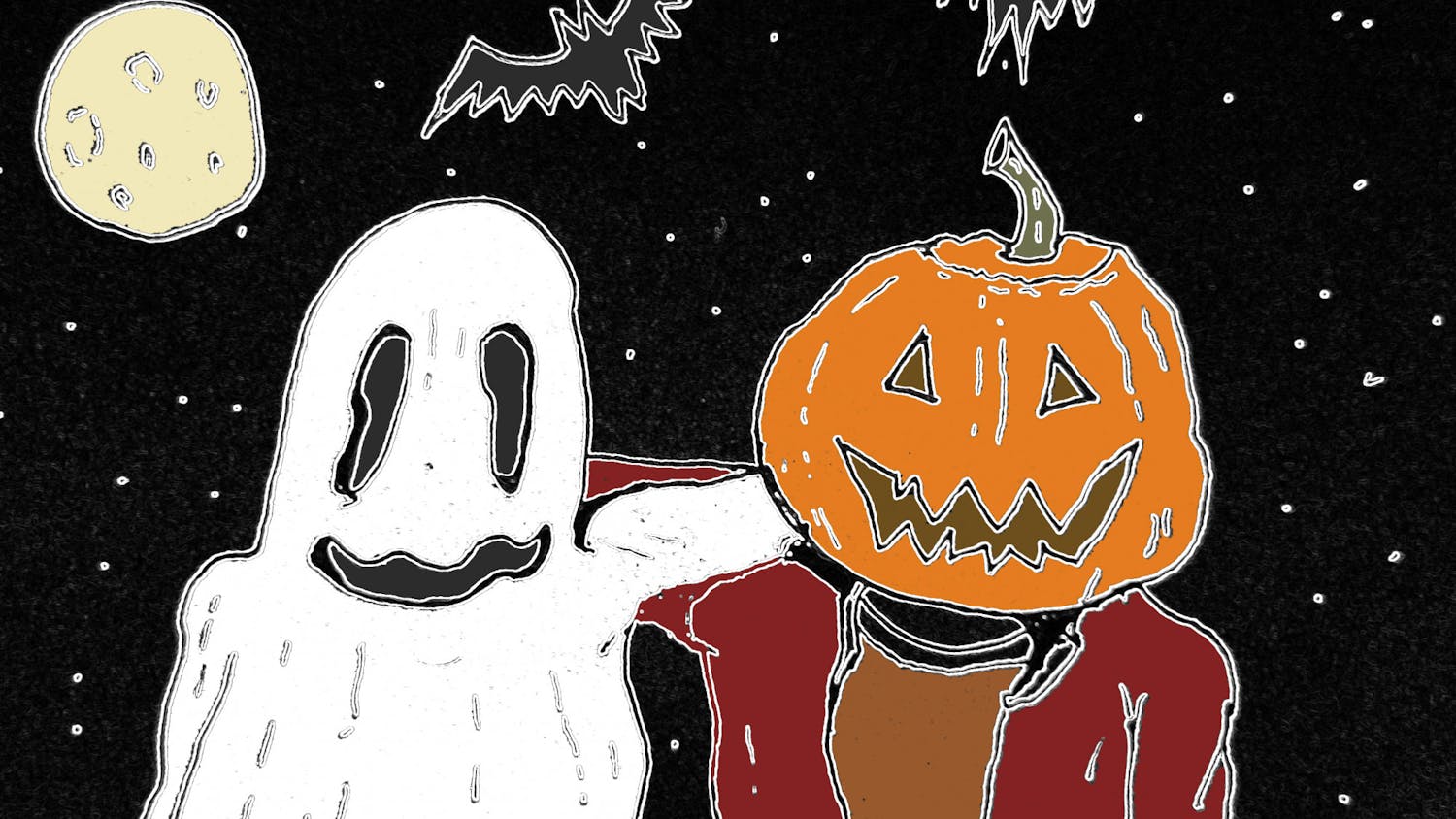The classic “The Little Mermaid” is the latest in a batch of animated Disney movies remade into live-action films. Like many of the other live-action remakes, this iteration of “The Little Mermaid” seems to miss the point of its predecessor, and ultimately makes for a weaker narrative and frustrating viewing experience.
Before we dissect what this movie fails in doing, let’s discuss what actually worked. First, Halle Bailey’s Ariel is hands-down the best part of the movie. Bailey is not only able to capture the curiosity and youthful energy of 1989’s Ariel, but also adds a level of assuredness and willpower that makes the character much more nuanced. After Bailey received massive racist backlash after the announcement of her casting, and again after the first trailer was released, it’s only right that she proves the naysayers wrong by being so unequivocally talented.
Next, Ariel and Eric’s relationship dynamic is massively improved upon in this remake. In the original movie, Ariel and Eric (Jonah Hauer-King) fall for each other because … they think the other is attractive? That’s pretty much it. In this version of the story, the two discover that they have a lot in common. They both feel stifled by the control of their parents and duties as royals, they’re (presumably) both adopted, they both long to explore the other’s world and they both have huge collections of said worlds. The actors have pretty good chemistry, and their relationship was incredibly endearing.
The next thing about the movie that worked was Jessica Alexander as Vanessa. At first, I was incredulous at the missed opportunity of casting Bailey’s sister, Chloe, since Vanessa is supposed to look vaguely like an “evil” Ariel (Alexander looks nothing like Bailey). However, Alexander’s performance sold me enough that I was willing to let this slide. She only has about five minutes of screen time, but she eats up every second. Another casting choice I liked was Eric’s dog, Max. He was played by a real dog (whose name is Gary, according to IMDb), and the dog is very cute.
Now, onto the less flattering things to say about the film. The rest of the cast was really lackluster. Every performance makes the new versions of these characters so much worse. The “soft-shell” Sebastian (Daveed Diggs) is now very … crabby for most of the movie (I’ll sea myshellf out). He’s much crueler and crankier than his 2-D animated counterpart. Melissa McCarthy’s Ursula is giving more Fairy Godmother from “Shrek 2” vibes than “drag-inspired Disney villain.”
Even Javier Bardem, arguably the best actor of the bunch, makes Triton seem so much more cruel and ill-intentioned than in the animated classic. The backbone of “The Little Mermaid” is the father-daughter relationship between Triton and Ariel, and his arc of eventually letting her go. In this version, Triton never shows remorse after destroying Ariel’s prized collection; he only destroys it because he feels disrespected, not out of a misplaced act of protection. Plus, he doesn’t even let Ariel go back to the surface at the end until Sebastian talks him into it offscreen. It completely ruins the relationship that made the original movie so great.
On the topic of Triton, Ursula is now his sister. This adds nothing to the plot and also makes no sense since Ursula is half-octopus, not a mermaid. Many changes made to Ursula added nothing and were either contrived or convoluted. An added aspect of her deal with Ariel is that Ariel no longer remembers that she must kiss Eric to stay human. So, what exactly does she think she’s doing on the surface? The film never explains this and this aspect adds nothing to the plot.
Many things about Ursula’s deal with Ariel have been changed. Ariel’s voice is no longer payment, but part of “becoming human” (for some reason Ariel doesn’t question this, deleting one of the most iconic parts of “Poor Unfortunate Souls”). Ariel no longer signs her name on a contract (presumably because too many bad-faith nitpickers on the internet pointed out that Ariel could’ve just written down that she was cursed by a sea witch), in fact, she hardly even agrees to the deal at all. If you thought Ariel lacked agency in the original, you’ll be shocked to find that the shred of the agency she did have has been completely removed.
Ironically, a few measures were taken that respond to feminist criticisms of the original movie. Instead of Ariel being saved by Eric at the climax of the film, she saves him instead. This was a pretty bewildering change for a few reasons. For one, Ariel already saves Eric at the beginning of both versions of the story, so it’s clear that she isn’t a constant damsel in distress. For another, this version goes out of its way to set up that Eric is a very accomplished naval helmsman, unlike the animated movie, so Eric killing Ursula via pointy boat actually makes more sense in this version. Instead, Ariel, who has never sailed in her life, literally flops to the wheel of the boat and navigates the vessel into a woman whom she’s just found out is her aunt.
A few minor lyric changes were also made in order to make the subject matter less problematic. The changes were so subtle that I walked out of the theater confused about what exactly they changed about “Kiss the Girl” that I had been hearing about. Both “Kiss the Girl” and “Poor Unfortunate Souls” underwent slight lyric changes in order to evoke that consent is important and women shouldn’t have to give up their voices for men, respectively.
Although the “Kiss the Girl” changes were noninvasive and understandable, the changes made to “Poor Unfortunate Souls” were a bit confusing, seeing as it’s the villain song, and you as a viewer are supposed to recognize that the filmmakers are not advocating for Ursula’s worldview. Nonetheless, the lyric changes were also not noticeable, and apart from the deletion of an entire verse, the song mainly remained the same.
The new songs, written by Lin-Manuel Miranda and returning legend Alan Menken left much to be desired. Out of the three, only one (“For the First Time”) actually furthered the plot and was an enjoyable listen. Prince Eric’s new solo is quite boring, and Miranda’s encroaching desire to add a rap to every project he’s part of is distracting and incredibly difficult to listen to.
At the end of the day, if I want to watch a great movie about a mermaid that falls in love with a human prince, I still have the 1989 animated film to turn to. This film is not meant to replace the original, nor is it really meant to improve upon it (try as they might to convince us otherwise). This film fails in many ways but succeeds in doing exactly what it set out to do: make money.
What Disney doesn’t seem to understand is people don’t tend to remember their films based on how much money they made. They remember them based on the Disney magic they evoke. Unfortunately, although this movie has magical moments, it is far too encroached in cynicism surrounding the original movie and Disney brand to feel anywhere near as magical as the animated classic.






